Child Survival Program Celebrates the True Meaning of Christmas
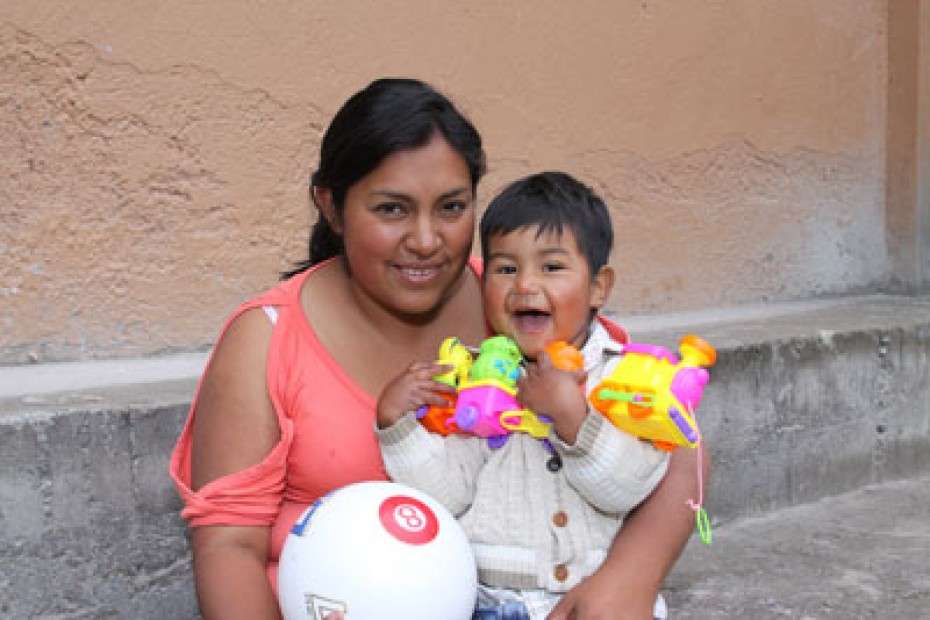
María lives in the La Victoria Alta neighborhood, a place with limited access to public transportation and public services. It is one hour away from Quito’s downtown area, a place where the cold weather is so intense that people feel chilled to the bone. María is one of the hundreds of mothers who cry at Christmas time.
Continue Reading ›Giving Birth in the Developing World
Most Papuan women still give birth with traditional methods in a traditional Papuan house made of wood with a grass bed. They prefer to give birth at home because they are also afraid of the service from health workers who are not always friendly. Many believe that it is more efficient to give birth at home alone or with help of someone who lives nearby.
Continue Reading ›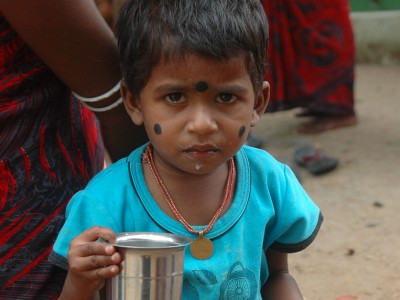
Saving Baby Girls From Infanticide in India
The 21st century has witnessed a great rise in development around the world. Communications and scientific research are developing at a rapid pace. The world is moving toward great change in culture and lifestyle. Gender equality is becoming common in many places, and girls are achieving heights once thought not possible.
However, even as the world is moving toward progress, the age-old social evil of female infanticide still shows its ugly face in developing countries such as India.
Counting Malaria Out
At the center of Riaciina village in Kenya lies a semi-permanent house, traditionally constructed. The walls of the house are made of mud and smoothly smeared with cow dung. The roof is thatched with iron sheets. There is a big gap between the mud and iron sheets. Mosquitoes penetrate freely day and night. 
This is the home of Amina, a toddler enrolled in the local Child Survival Program (CSP). At the back of the homestead lies waste from the nearby kitchen. On the other side of the home are thick bushes of indigenous trees.
As the CSP specialist visited the mother, mosquito bites could be noted on the face of the child. Throughout the session, the TEEEE! TEEEE! sound of mosquitoes could be heard.
In some countries, mosquitoes are just nuisance, but in Riaciina, mosquitoes pose a deadly threat. Mosquito-borne malaria is the major killer disease in the area.
Riaciina village lies in the semi-arid part of Kenya on the extreme southern slopes of the largest mountain in Kenya, Mount Kirinyaga. The occupants are mainly the Ambeere and the Akaamba people whose primary work is farming and fishing. (more…)
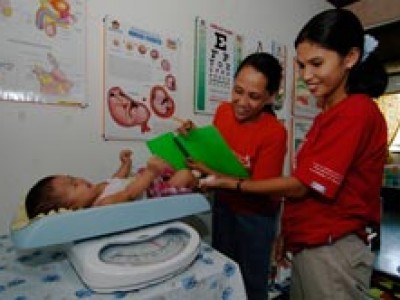
Child Survival 101
Being a mother takes courage. Being an expectant mother in desperate poverty takes courage and so much more.
Each year more than 500,000 mothers die in childbirth or from pregnancy complications, most of which are preventable. The babies who survive while their mothers die are much more likely to die in their first year of life.
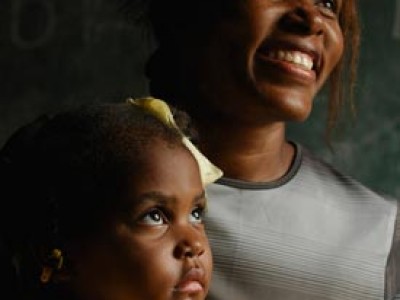
Ti Chape
It’s a Creole phrase that many parents in these poorest areas of Haiti use with their youngest kids. I’m sure you’ll hear it often over the next several days as we visit homes. It’s a term of endearment … but also a harsh reality that reminds everyone of how devastating each day can be for people living on the brink. Ti Chape means little survivor or one who has escaped death
Child Survival: A Story From Peru
It’s hard to believe my boy, Edison, is 13 months now. He’s toddling around the house at different speeds with various amounts of control, experimenting with new and unusual crash techniques. It’s quite entertaining.

He can talk now, too. Hat, book, what and it’s impossible to forget his absolute favorites, hi, dog and ruff-ruff (of course spoken with a slight growl). I wish you could hear his little kid voice yelling all these words with abandon to anyone who will listen.
He uses his favorite words at very specific times. Whenever out and about, most anyone anywhere will hear his request for attention from strangers because of his very loud and clear hi!
But his real favorite is dog. It’s usually the first thing he says when he wakes up in the morning, and just to make sure I understand what he said, he will add a ruff-ruff for good measure.
It’s amazing to think that just a few months ago he literally couldn’t do anything.
Over the last several months, since I entered back into life after Edison’s birth, I’ve been volunteering in my church’s nursery. I typically take care of the newest babies, which is a great reminder of how far Edison has come, but even more it’s a great reminder of just how vulnerable babies are – which brings me to Carmen.
I met Carmen after a hike up a steep hill on a dirt path in the outskirts of Lima, Peru. All the while I was going up I kept wondering how far I would have to traverse to actually make it down the hill without falling.
Carmen knows this path well. She climbs it often. She climbed it when she was pregnant and she climbs it now with a 5-month-old in her arms. She climbs it because it is the only way to get to her house. (more…)
Visiting Uganda
Below is an excerpt from an e-mail that Paul Moede, the leadership development marketing director for Compassion U.S., sent to his family last week and also shared with his co-worker, Gayle White.
Paul is currently traveling in Uganda.
Today we visited a child survival program deep in a rural area. Sometimes it boggles my mind to see the joy of little kids who see a bus. They run alongside the road waving and laughing. Closest I’ll ever be to a rock star. Unbelievably chaotic roads, traffic that is harrowing and market stalls that defy description. Sides of meat hanging in the sun. . . . fresh fruits and vegetables . . . and people thronging everywhere.
Thought I would tell you about a home visit today with a single mom and three children — and infant and two toddlers. The mom, Sauda, has recently been abandoned by her husband, and has no source of income at all — just a plot of garden from which to feed her family. I could tell you more, such as the day her mud and thatch hut caved in on her from the rain and she had to build a new hut by herself. About 7′ by 12′ for four people.
After we spent time with her, we left gifts for her children as well as a tub and bag of staples. Never in my life have I seen such a response to a gift — joy that she could not contain. She covered her face as she knelt before the food and started to sway back and forth. And then she erupted from the ground, raised her hands and started dancing. Now I’m not talking about subtle. I mean clap your hands, shake your booty, turn and sing at the top of your lungs dancing. And she went on for two minutes. The joy was so contagious all we could do was clap along with her and choke back the tears.
Unbelievable.
Anyway, all is well. The poverty and chaos is bleak. The infrastructure is rotting away, but the church gets things done.
Paul
Measurable Outcomes
Why do we do the things we do? You and I.
Why bother getting that advanced degree? Just for the credentials?
Why eat the whole pint of Ben and Jerry’s ONE Cheesecake Brownie when 500 calories of poverty fighting creaminess would be good enough? Why buy the pint to begin with?
It’s About More Than Survival
Last month, I was reviewing the next newsletter that will be sent to people who support our Child Survival Program. I wasn’t too far into it when the tears started coming. Ok, so it isn’t completely unusual for me to cry while doing my every day work … I mean I do work at Compassion. But this time was different.
This time I could hear my son’s giggle, I could picture his face and I knew that if I had been born in one of Compassion’s ministry countries, most likely neither my son nor I would be alive today.
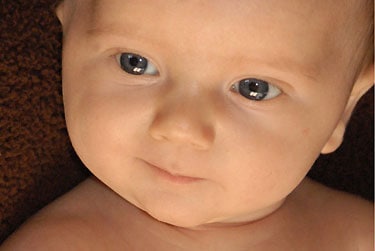
And Edison, my sweet Edison, who was born by c-section after hours of labor that went nowhere will probably be 15 pounds in a few weeks … an average weight for a four-month-old boy in the U.S.
- What would I have done alone in a ramshackle house with a dirt floor after hours of pushing and no baby?
- What would I do now without the multiple child health and development resources that I pour over weekly?
- What would I do without Jesus and the support of my local church community?
It’s a miracle that a small number of women and children in these circumstances actually survive. How can I not do everything I can possibly think of to tell others about what Compassion’s Child Survival Program is doing?
How can I not pray that this program can grow and grow and grow? So the children around the world growing up along with the amazing boy God has blessed me with will have the opportunity to reach their potential.
In a world with a growing global economy it is no longer about children and mothers who are far away, it’s about my next door neighbors … it’s about my own child.
And it is not just about survival it’s about women and children thriving so that they can change their own communities and countries and build a better world.
Inside Uganda With Patience Musiime
If you’ve been following our 15 Christian bloggers on their trip to Uganda you’ve seen only a glimpse of what it’s like to live in extreme poverty. It’s an outside view of Compassion’s ministry.
Today we present part two in a series of blog posts from staffers of Compassion Uganda who will give you an inside look into how Compassion’s ministry operates among the poorest of the poor.
The Child Survival Program (CSP) serves caregivers, infants and toddlers in some of the world’s poorest communities. Caregivers enrolled in CSP are visited each week by dedicated staff, whose passion is to bring health and healing to homes affected by poverty. Patience Musiime, a CSP specialist in Uganda, shares her favorite stories of hope from the Child Survival Program.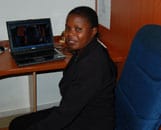
In 2004, Uganda opened our first Child Survival Program. At the Bugongi CSP, we have seen so much happen in just four years. In the Bugongi CSP, all of our 20 pregnant mothers have given birth to bouncing, healthy babies. This is a miracle! In Uganda, 200,000 children under the age of 5 die every year. But the babies in CSP are living!
In Uganda’s CSPs, we first understand that a mother must be healthy if she is to take care of her children. So we make sure our mothers go to a licensed health care center for their medical care, both before and after the baby is born. Since hundreds of thousands of mothers and children in Uganda are infected with AIDS, we also make sure to teach our mothers about protecting themselves and their families from this disease. For mothers who have HIV, we arrange medical care and teach them income-generating activities. But CSP is not just about caring for a family’s physical needs. We believe spiritual poverty is just as deadly as physical poverty.
In the first year that the Bugongi CSP was open, two mothers made a commitment to Christ. Today, 75 of our mothers know Christ as their Savior. These mothers are able to attend Bible studies, discipleship classes and home fellowships. Also, when we visit the homes of these mothers, we pray with them and help them understand how much Jesus loves them.We believe that we can end poverty for the families in our Child Survival Programs. If we can teach our mothers income-generating activities, they can help support their families and gain confidence.
Bugongi CSP runs an adult literacy class, and 26 mothers who formerly could not read and write now write their names, do simple arithmetic. and read in the local languages. Five mothers have successfully graduated with certificates in fashion and design. Mothers are also given skills in crocheting and home baking.
If you could visit us at the Bugongi CSP, I would introduce you to so many of our mothers whose lives have been changed. You would meet Mary, mother to Doreen, who tells us, “CSP has helped me through parenting seminars to attain parenting skills. My child now looks healthy. I have learned to read and write. I now can write my name. I gave my life to Christ through evangelism sessions in CSP.”
And you could meet Anne, who is enrolled with her twins Angel and Andrew. She told me, “CSP has done a lot in my life. I have learned how to prepare a rich meal for my children, the importance of immunization and how to live peacefully with other people. I can now talk in public and I really love my children, play with them and teach them.”
CSP is changing lives. So far, we have witnessed 46 of our children transfer to the sponsorship program. These children are well developed physically, spiritually, socially and mentally. All because there are CSP partners who believe in releasing children from poverty in Jesus’ name.

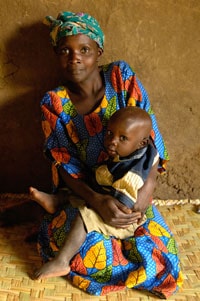 Today we visited a
Today we visited a 
